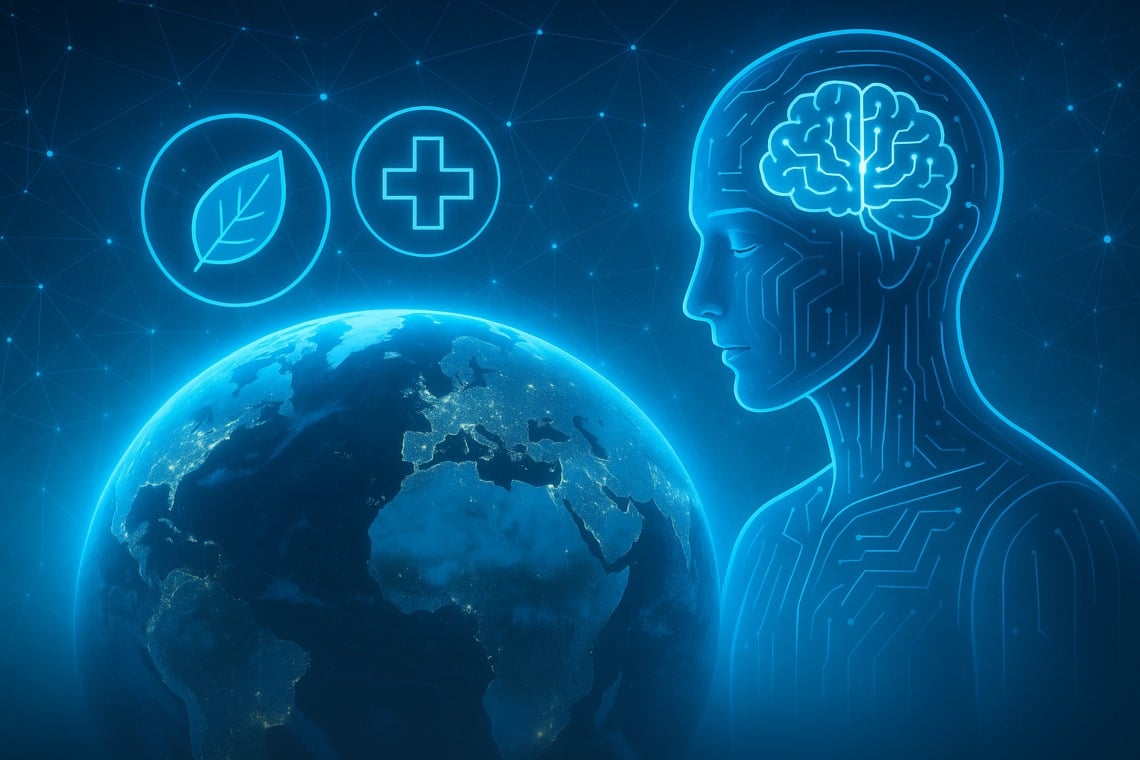From climate change to public health, AI is emerging as a transformative technology, capable of generating concrete, positive, and large-scale impacts.
On the occasion of AI Week, an event held in Milan on May 13 and 14, 2025, real use cases were presented that demonstrate how artificial intelligence is already improving the quality of life and offering innovative solutions to historical problems.
“`html
AI against climate change: predicting floods with Flood Hub
“`
One of the most impressive examples is that of Flood Hub, a platform developed to predict flash floods thanks to advanced hydrology models, machine learning, and meteorological analysis.
In a village of Naurua, in India, a nighttime flood struck without warning, causing the loss of human lives.
Thanks to Flood Hub, now active in over 80 countries, it is possible to predict similar events a week in advance. This allows for the implementation of timely evacuation plans and significantly reduces damage to people and infrastructure.
Why does this matter?
- Saves lives in contexts where time is a critical factor
- Reduces the costi economici related to natural disasters
- Increases the climate resilience of communities
Flood Hub is the perfect example of how AI can protect the planet and its inhabitants by anticipating increasingly frequent extreme events.
Artificial intelligence at the service of public health
Diabetic retinopathy: a global challenge
Avoidable blindness is one of the most underestimated health issues globally. Diabetic retinopathy, in particular, affects millions of people in developing countries, where access to specialists is limited.
Thanks to artificial intelligence, it is now possible to perform automated and precise screenings, drastically reducing the time and costs of diagnosis.
The results speak clearly
- 600,000+ AI-based diagnoses performed in India and Thailand
- Access to diagnosis in rural areas previously excluded from healthcare systems
- Improvement of the quality of life and economic productivity
AI does not replace the doctor, but brings the doctor where there was none.
This is a concrete example of how AI can become an ally for global health and for equity in access to care.
AI as a tool for democratization
One of the most revolutionary aspects of modern AI is its universal accessibility. Today, anyone with a smartphone and an internet connection can:
- Access cutting-edge modelli di AI generativa
- Use advanced productivity and learning tools
- Overcome economic, geographical, and linguistic barriers
In the past, technological innovation was the prerogative of the few. Today, artificial intelligence breaks down boundaries and democratizes knowledge.
Why is this fundamental?
- Encourages training and entrepreneurship in emerging countries
- Favors digital inclusion on a global scale
- Promotes equal access opportunities to advanced tools
AI can save the world, if used well
Artificial intelligence is not just a technological revolution, but a strategic choice for the future of humanity. From climate disasters to preventable diseases, from geographical limits to educational inclusion, AI can become the most powerful tool to tackle complex challenges.
The question to ask ourselves is simple: Why not?
If AI can save lives, improve public health, and protect our planet, then it is our responsibility to use it in the most ethical, fair, and effective way possible.
